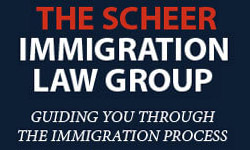Obtaining Visas for Parents and Siblings in New Jersey Family-Based Immigration
Family unity is a fundamental aspect of the immigration system in the United States. The process of obtaining visas for parents and siblings through family-based immigration in New Jersey can be intricate and demanding. Understanding the specific requirements, categories, and procedures involved is essential for anyone seeking to reunite with their family members. This guide provides a comprehensive overview of the steps and considerations necessary for successfully obtaining visas for parents and siblings under the family-based immigration program.
Understanding Family-Based Immigration Categories
Family-based immigration allows U.S. citizens and lawful permanent residents (LPRs) to petition for their family members to come to the United States. The process is divided into two main categories: immediate relatives and family preference categories. Immediate relatives include spouses, unmarried minor children, and parents of U.S. citizens. Family preference categories cover a broader range of relatives and are further divided into four preference levels. The eligibility criteria and waiting times for these categories can vary significantly.
Immediate relatives of U.S. citizens enjoy certain benefits, such as not being subject to numerical limitations on visas. This category includes parents of U.S. citizens who are 21 years of age or older. On the other hand, siblings of U.S. citizens fall under the fourth preference category, which is subject to annual numerical limitations and typically involves longer waiting periods. It is important to determine the appropriate category for your family members to understand the specific requirements and timelines involved in the visa process.
Eligibility Requirements for Parents and Siblings
The eligibility requirements for obtaining visas for parents and siblings under the family-based immigration program depend on several factors, including the immigration status of the petitioner and the relationship to the beneficiary. For parents of U.S. citizens, the petitioner must be at least 21 years old and must provide evidence of their U.S. citizenship. The beneficiary parent must also meet certain admissibility criteria, such as not having any disqualifying criminal convictions or immigration violations.
For siblings of U.S. citizens, the petitioner must be a U.S. citizen who is at least 21 years old. Unlike the immediate relative category, the family preference category for siblings is subject to numerical limitations, which can result in longer waiting times. The petitioner must demonstrate a qualifying sibling relationship by providing evidence such as birth certificates or other official documents that establish the familial connection. Additionally, the beneficiary sibling must also meet the admissibility requirements set forth by U.S. immigration laws.
Filing the Petition: Form I-130
The first step in the process of obtaining visas for parents and siblings under the family-based immigration program is filing Form I-130, Petition for Alien Relative. This form is used to establish the qualifying relationship between the petitioner and the beneficiary. The petitioner must complete and submit Form I-130 to U.S. Citizenship and Immigration Services (USCIS) along with supporting documentation and the required filing fee.
When filing Form I-130 for parents, the petitioner must provide evidence of their U.S. citizenship, such as a birth certificate, passport, or naturalization certificate. Additionally, documentation proving the parent-child relationship, such as birth certificates and marriage certificates, must be included. For siblings, the petitioner must provide evidence of their U.S. citizenship and documentation establishing the sibling relationship, such as birth certificates showing a common parent.
USCIS will review the petition and supporting documentation to determine whether the qualifying relationship has been established. If the petition is approved, USCIS will forward it to the National Visa Center (NVC) for further processing. It is important to ensure that all required documentation is complete and accurate to avoid delays or denials in the petition process.
National Visa Center Processing
Once the I-130 petition is approved by USCIS, it is sent to the National Visa Center (NVC) for further processing. The NVC is responsible for collecting additional documentation and fees required for the visa application. The petitioner and beneficiary will receive instructions from the NVC on how to proceed with the next steps in the process.
The NVC will request the submission of the DS-260, Immigrant Visa Application, and supporting documents such as civil documents and financial evidence. The petitioner must also submit the Affidavit of Support, Form I-864, to demonstrate their ability to financially support the beneficiary. This form requires the petitioner to provide information about their income and assets to ensure that the beneficiary will not become a public charge.
It is crucial to carefully follow the instructions provided by the NVC and submit all required documentation in a timely manner. Any missing or incomplete documents can result in delays or denials in the visa application process. Once the NVC has received and reviewed the required documents, the case will be forwarded to the appropriate U.S. embassy or consulate for further processing.
Consular Processing and Interview
After the National Visa Center has completed its processing, the case is sent to the U.S. embassy or consulate in the beneficiary’s home country for consular processing. This stage involves a visa interview, where the beneficiary will be required to attend an appointment at the U.S. embassy or consulate to complete the visa application process. The purpose of the interview is to verify the information provided in the application and to assess the eligibility of the beneficiary for the visa.
The beneficiary will receive an appointment notice with the date, time, and location of the interview. It is important to gather all required documents, including the passport, appointment confirmation, DS-260 confirmation page, and any additional documents requested by the embassy or consulate. The beneficiary should be prepared to answer questions about their relationship with the petitioner, their background, and their intentions for immigrating to the United States.
During the interview, a consular officer will review the application and supporting documents and may ask questions to verify the information provided. If the consular officer determines that the beneficiary is eligible for the visa, it will be issued, and the beneficiary will receive instructions on how to obtain their visa and travel to the United States. If there are any issues or concerns, the consular officer may request additional information or documentation, which could result in delays in the visa issuance process.
Attorney Susan W. Scheer attended Douglass College at Rutgers University and received her B.A. in 1974. She attended Georgetown University to get her M.A.T. in 1977 and went on to receive her J.D. from Georgetown as well in 1982. Susan is admitted to practice in New Jersey and before the United States Supreme Court.
Susan speaks Spanish, French, Hebrew, and Portuguese.
Adjustment of Status for Parents and Siblings Already in the U.S.
For parents and siblings of U.S. citizens who are already in the United States, the adjustment of status process allows them to apply for lawful permanent resident status without having to leave the country. This process involves filing Form I-485, Application to Register Permanent Residence or Adjust Status, along with supporting documentation and the required filing fee.
The eligibility requirements for adjustment of status vary depending on the specific circumstances of the beneficiary. Generally, the beneficiary must have entered the United States lawfully and must not have violated their immigration status. Additionally, the beneficiary must be eligible to receive an immigrant visa and must not be subject to any grounds of inadmissibility.
When filing Form I-485, the beneficiary must provide evidence of their qualifying relationship with the petitioner, such as birth certificates or other official documents. The beneficiary must also undergo a medical examination and provide evidence of financial support, such as Form I-864, Affidavit of Support. Once the application is submitted, USCIS will review the documentation and schedule an interview to determine the beneficiary’s eligibility for adjustment of status.
What are the Requirements to File for U.S Citizenship?
Including Your Spouse and Children in a Green Card Application
Working While an Adjustment Application is Pending
Common Challenges and How to Overcome Them
Obtaining visas for parents and siblings under the family-based immigration program can present various challenges, including lengthy processing times, complex documentation requirements, and potential inadmissibility issues. It is important to be aware of these challenges and to take proactive steps to address them to ensure a smooth and successful visa application process.
One common challenge is the lengthy processing times for family preference categories, particularly for siblings of U.S. citizens. Due to annual numerical limitations, the waiting period for these visas can be several years. It is important to plan ahead and to be patient throughout the process. Staying informed about the visa bulletin and understanding the priority dates can help manage expectations and provide a clearer timeline for when the visa may become available.
Another challenge is ensuring that all required documentation is complete and accurate. Missing or incomplete documents can result in delays or denials in the visa application process. It is crucial to carefully review the instructions provided by USCIS and the NVC and to gather all necessary documents before submitting the petition and application. Seeking guidance from an immigration attorney can also help ensure that all documentation is properly prepared and submitted.
Inadmissibility issues can also pose significant challenges in the visa application process. Certain criminal convictions, immigration violations, or health-related issues can render a beneficiary inadmissible to the United States. In such cases, it may be possible to apply for a waiver of inadmissibility to overcome these barriers. The waiver process can be complex and may require demonstrating that the denial of the visa would result in extreme hardship to the U.S. citizen petitioner. Consulting with an immigration attorney can provide valuable guidance and assistance in navigating the waiver process.
The process of obtaining visas for parents and siblings under the family-based immigration program in New Jersey requires careful planning, thorough documentation, and a clear understanding of the eligibility requirements and procedures involved. By following the steps outlined in this guide and addressing any challenges that may arise, you can increase the likelihood of successfully reuniting with your family members in the United States.
Contact The Scheer Immigration Law Group Today
At The Scheer Immigration Law Group, we understand the complexities of the immigration process and are committed to helping families navigate the path to reunification. Our experienced team of immigration attorneys is here to provide the guidance and support you need to successfully obtain visas for your parents and siblings. Whether you need assistance with filing petitions, gathering documentation, or addressing inadmissibility issues, we are here to help. Contact us today to schedule a consultation and take the first step toward reuniting with your loved ones.


 From the initial consultation to the successful resolution of my case, their commitment to excellence was evident. Scheer Immigration Law Group not only provided legal expertise but also exhibited a genuine concern for my well-being throughout the journey.
From the initial consultation to the successful resolution of my case, their commitment to excellence was evident. Scheer Immigration Law Group not only provided legal expertise but also exhibited a genuine concern for my well-being throughout the journey.





